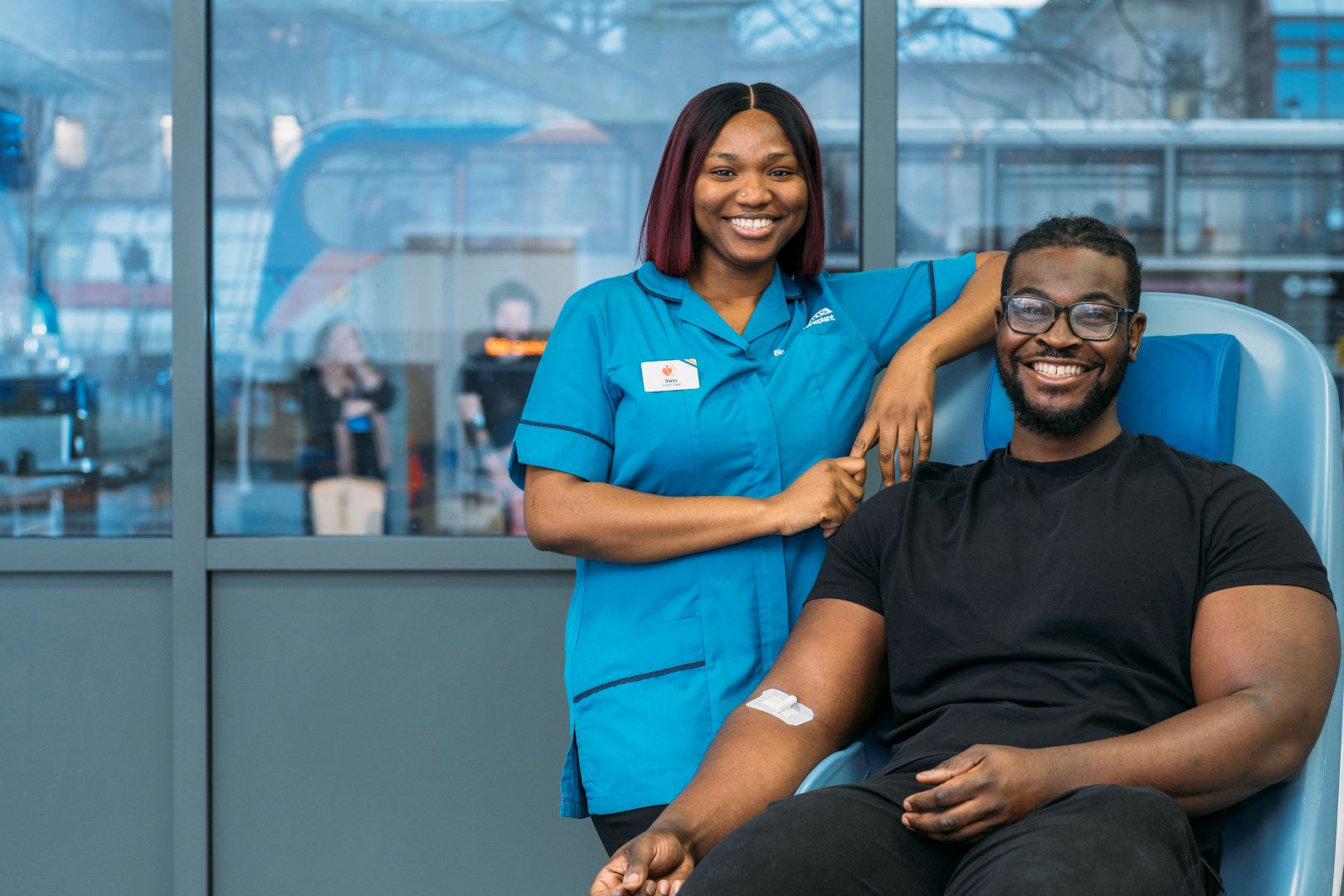Updates from your donation sessions
We're becoming more inclusive
From summer 2024, we’re becoming more inclusive. People registering to become a donor will also be asked for their sex assigned at birth, as well as currently being asked for their gender.
The change comes as part of NHS Blood and Transplant’s continuous drive for inclusivity and will ensure we provide donors with the best clinical advice. It has been recommended by the Joint UK Blood Transfusion and Tissue Transplantation Services Professional Advisory Committee (JPAC), the UK’s independent advisory body for blood and tissues. The JPAC has advised that using both sex assigned at birth and gender identity brings extra safety for donors and patients as well as improving the screening experience.
A donor’s sex needs to be recorded as the ways in which blood products are donated and processed differ between males and females. Some blood products, for example, are only safe to manufacture from male donors without additional testing.
New donors will be asked for their sex assigned at birth at the point of registration.
Only those donors whose sex assigned at birth differs from their gender should contact us. We will then be able to give advice about the most suitable blood donation frequency and other clinical matters.
Help save lives this springtime
Blood, plasma and platelet donations only last a short time, so we need donations every single day, all year round.
That can mean upcoming bank holidays and summer trips can have a negative effect on the levels of blood products.
If you are eligible to donate blood, platelets, or plasma in the coming weeks, please consider booking an appointment for this busy period to help provide the NHS with what it needs to continue saving and improving people’s lives.
If you do already have an appointment, please make sure to fully prepare for your donation or if you can’t attend, please let us know as soon as possible, so that the appointment can be made available again.

The RESTORE trial – the world is watching
We are running a pioneering study that’s attracting massive international interest. The RESTORE trial is testing red blood cells that have been grown in a laboratory. Healthy volunteers are being given mini transfusions of these ‘manufactured cells’ to see if they last longer than standard donated blood and to check they are safe.
The most frequent problems we encounter in supplying blood are for people with sickle cell disease and rare blood groups and those who need transfusions throughout their lives.
Using blood from volunteer donors, stem cells are taken, from which we grow mature red blood cells at the Advanced Therapies Unit in Bristol.
A mini transfusion is then given to another person who is monitored closely and followed up for 6 months. This is repeated with standard red blood cells for comparison, several months apart. The study is monitoring 10 people who receive both types of cells in a randomised order.
Many NHS Blood and Transplant departments are involved and include the donor clinic in Cambridge, blood testing labs in Manchester and London, and our Clinical Trials Unit, along with Guy’s & St Thomas’s and Addenbrooke’s Hospital.
Extra ways donors are supporting us to keep donations safe
When it comes to the safety of patients in need of blood, the donation safety check you are asked to complete before donating is vitally important.
That’s why we are always monitoring how measures like these are working. We would like to find out how donors answer these questions and what they think about them.
Between April and July 2024, we will be randomly selecting over 100,000 blood donors to take part in a survey about the donation safety check.
The survey, run with the UK Health Security Agency (UKHSA) and the University of Nottingham, will enable us to understand more about those who donate and help to shape future policy.
We are also planning to survey about 5,000 donors who live in areas where viruses such West Nile virus and tick-borne encephalitis could emerge. We plan to ask about travel and vaccination history, exposure to insects, ticks and animals, outdoor occupation history and outdoor hobbies and leisure activities.
The answers and the testing results will help us to monitor the introduction and spread of pathogens and to identify possible risk factors for infection.
